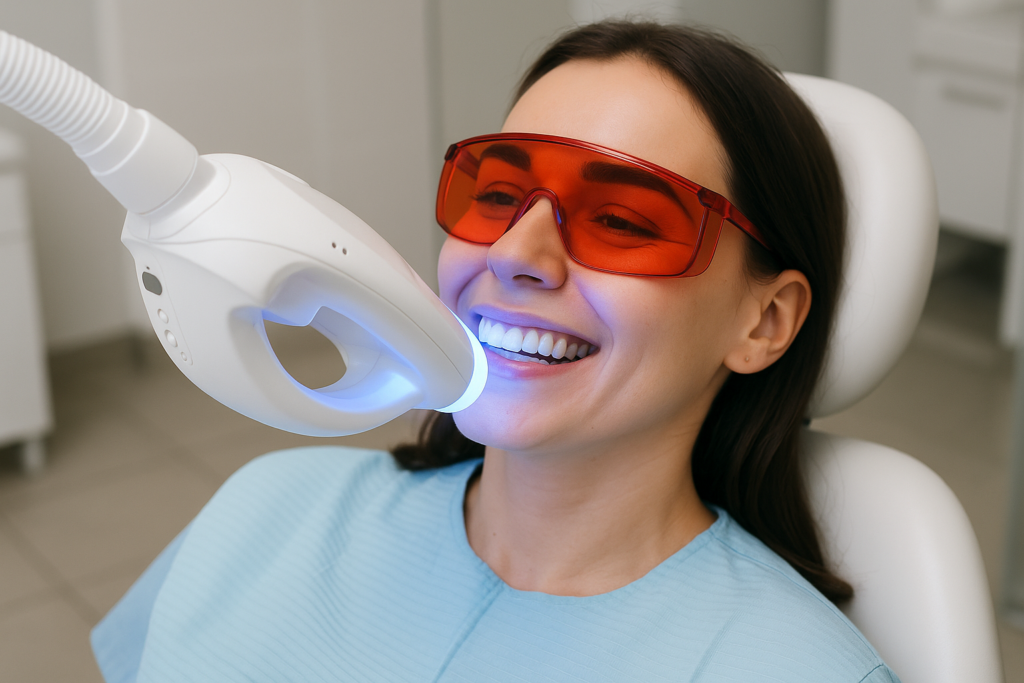Teeth Whitening TurKey

Is having a brighter and whiter tooth on your bucket list? Teeth whitening treatment can fulfill your dreams! There is a variety of easy to use options readily available at the drugstores, but are these of any use? Well, using them for a long time may end up staining your teeth. But, that’s not the case with the teeth whitening treatment.
With the help of this treatment, you can get rid of stained and discolored formations on teeth. When it comes to teeth, there are many factors to look onto. We have highlighted the list for a few factors that will help clear all your doubts about the teeth whitening procedure. Keep reading to explore.
Professional Results in Teeth Whitening Turkey
We see people struggling from teeth discoloration and how hard they find to get rid of this problem. Teeth whitening is a perfect solution for all those who want to change the colour of natural teeth and decayed teeth. The whole process is a safe way to whiten teeth and get back your beautiful smile.
Turkey is a well-known hotspot for advanced and affordable dental procedures. Having said that, the dentists here selected after an in-depth selection process.
When it comes to choosing location for professional teeth whitening Turkey is a good option. It means you are sure to get certified and experienced dental treatment with Smile Team Turkey.
What Are The Causes Of Discoloration Of The Teeth?
Teeth discoloration can occur due to long-term consumption of food and structural imperfections. Foods like – tea, food, tobacco, and coffee are the major substances that trigger the extrinsic teeth discoloration. Some people also have intrinsic discoloration that affects the teeth from within. This includes – tooth infection, childhood illness, trauma, and aging. When the saints get in the teeth structure, it cannot be removed simply by brushing; it has to go through clinical procedures like – teeth whitening.
Who Needs Professional Teeth Whitening?
The yellowing of teeth is natural. While some have mild discoloration, others face severe yellowing. These can be dues to bad dental hygiene and beverages that stain the teeth. Not just that, some people get teeth yellowing due to factors like – taking certain medications, nerve damage of teeth, old-age, genetics, and more. So, teeth whitening won’t work on everyone, the dentist will analyze your situation and help accordingly. Getting teeth whitening will help you get the pearly smile you always wanted. Get free quote for affordable Teeth Whitening Turkey options.
Benefits of Professional Teeth Whitening
Searching for reasons why you should get teeth whitening in Turkey? We will give you reasons.
- Reasonable rates
- World-class technology used at clinics.
- Attractive dental travel packages.
- Quality standards and invasive dental procedures
- Enhances your appearance and self-confidence
Don’t forget to check before and after the procedure pictures of our clients.
Possible Risks and Complications of Teeth Whitening
Gum Irritation:
Hypersensitivity:
Some patients often face increased sensitivity levels after the treatment. The teeth may feel sensitive to hot and cold beverages. This too disappears in a few days. In severe cases, you may contact the dentist in turkey.
Gum Inflammation:
Do Teeth Whitening Have Any Side Effects?
How Long Does Teeth Whitening Last?
How Much Professional Teeth Whitening Does Cost?
The teeth whitening prices may vary in each clinic. As we all know the dental treatments are pretty expensive, Turkey is a viable option to get it done. You can opt for dental travels to Turkey to enjoy your vacations while getting the treatment at a reasonable price.
The teeth whitening cost in Turkey starts from £200 and beyond. You can chech our dental price list.
As long as the person sticks to dentist-approved methods, teeth whitening are a safe process. Get in touch with Smile Team Turkey top professionals for teeth whitening in Antalya, Turkey and say goodbye to discolored teeth forever.






